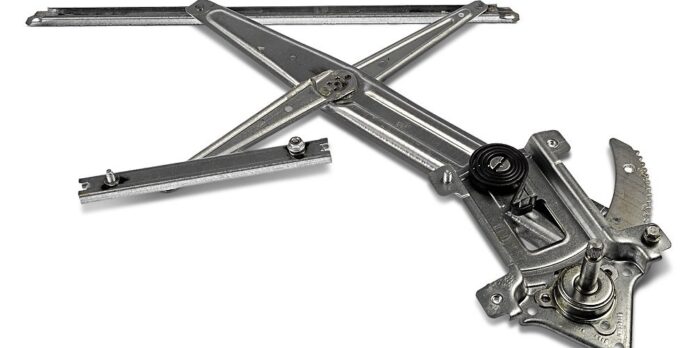Window regulators are complex pieces of machinery, but luckily for you they’re really simple when broken down. They work by using the scissor-like mechanism that consists on an arm connected to your window holder and another smaller thinner one which crosses it at right angles so both can slide along wheels inside glass trays up or down depending if opened high enough where there’s no need anymore for crossbars because these days almost every car does without them anyway! Keep reading and we’ll show you what are window regulators and how this all works.
Functions
Window regulators are devices that open and close windows. They help lock out weather conditions and let in fresh air. If they are functional, they also help occupants exit the room in an emergency. Additionally, a fully functioning window regulator is important for security. Using one of these devices can prevent thieves from taking advantage of a vulnerable home or vehicle.
There are different kinds of window regulators, including those that operate by manual action and those powered by an electrical motor. These regulators use a motor to rotate and control an actuator to raise and lower the window. Manual regulators, on the other hand, use a crank mounted on the door to open or close the window.
Types
Different types of window regulators work in different ways. Some work manually while others operate with an electric motor. Each type has its own advantages and disadvantages. Manual window regulators require pressure to adjust while automatic ones can be set to close the window automatically when a button is pressed. Both types require maintenance, and one type can be a problem if it fails to close properly.
Some window regulators require replacement, while others can be repaired or replaced. The type of window regulator that you need depends on your vehicle. Some regulators are designed for older vehicles, while others are specially made for newer cars. Window regulators that are designed for modern vehicles have several benefits. Compared to their predecessors, they are more durable, quieter, and smoother. Moreover, they operate faster than those installed in older cars.
Costs
The cost of replacing window regulators varies depending on the type and make of vehicle, as well as labor costs. Replacement parts typically cost $40 to $300, while labor can be another $100 to $120. Depending on the type of window regulator, replacement may take between one and three hours. If you’re unsure of your ability to replace the window regulator on your own, you can hire a mechanic or mechanics to do the job for you.
The cost of replacing window regulators can vary based on a number of factors, including the type of regulator and the complexity of tearing down the door. The price can also depend on whether you are replacing an automatic window regulator or a mechanical one.
Lifespan
Window regulators come with a variety of mechanisms. Some use a cable and motor, while others have a plastic belt and drive wheel. Some are even gear-driven slide links. Some of these mechanisms are more robust than others, but they can still wear out over time. Most are powered by a small electric motor. These motors can become defective due to worn brushes or shorted windings.
The most common regulators in modern vehicles are electrically operated. These units are operated with a master control switch or a button on the door panel. These regulators operate the window by connecting the window motor to wiring in the switch. The mechanism then raises or lowers the window. Scissor-type window regulators got their name from their shape, and they have been around for a long time.
Common problems
There are a few common problems that can affect window regulators. These issues can range from the motor running hot to the cable becoming tangled. These issues can be solved with a window regulator repair kit. Listed below are the most common problems that can cause malfunctioning window regulators. If you encounter one or more of these issues, contact a professional window repair technician as soon as possible.
Your window regulator is a part of your car that allows you to roll up or lower your window. It contains a motor and a pulley that helps raise or lower the window. A failure of this component will result in a stuck window. It may also make a noise, such as grinding, clicking, or chattering. Additionally, if the regulator is badly damaged, the window may fall inside the door. This can be very frustrating.




